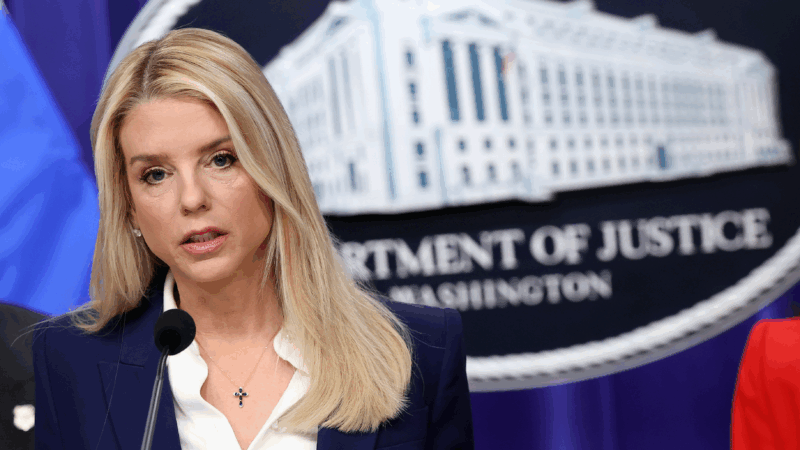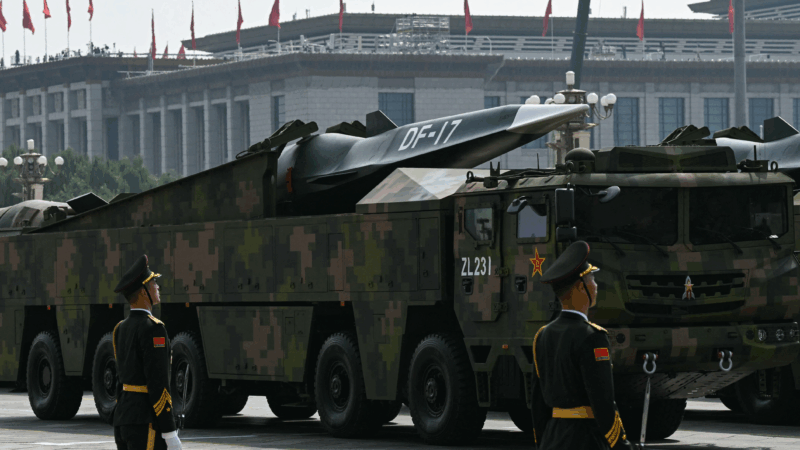Why Japan sees President Trump’s tariffs as a ‘national crisis’
Robert Ward is the Japan chair at the London-based think tank the International Institute for Strategic Studies (IISS), where he also directs the geo-economics and strategy program. He is the author of “Evaluating Japan’s New Grand Strategy“.
Since President Trump’s “Liberation Day” tariffs that targeted America’s friends and foes alike, there has been alarm in Japan, one of the United States’ staunchest allies in Asia, which also sees the U.S. as its most important export market, accounting for around 20% of all Japanese exports.
Although many of them are paused, Trump’s tariffs present a major threat to Japan’s already flagging economy. Adding to the gloom in Tokyo is the uncertainty of U.S. tariff policy toward China and the Association of Southeast Asian Nations (ASEAN), where Japanese firms are also heavily invested. Small wonder then that Japan’s Prime Minister Shigeru Ishiba has described the situation as a “national crisis.”
Ishiba has come under pressure from Japan’s opposition parties for his cautious handling of tariff negotiations with the U.S. This partly reflects Japan’s electoral cycle. Two important elections loom in July: first the Tokyo assembly poll and then that for the upper house of Japan’s parliament. Ishiba and his Liberal Democratic Party (LDP) are flagging in the opinion polls and so may struggle to perform well in these.
The LDP with its coalition partner, Komeito, has been a minority government since its poor performance in last year’s general election, which was held immediately after Ishiba’s appointment as prime minister. The two parties have a majority in the upper house of parliament, but losing in July would severely compromise the government’s ability to enact policy and may even trigger Ishiba’s resignation as prime minister. The opposition thus scents blood.
Japan’s limited room for maneuver

But Japan’s room for maneuver in tariff negotiations with the U.S. is limited. Unlike, for example, the European Union, it does not enjoy the advantage of being able to negotiate as a bloc. While Japan’s is still one of the world’s largest economies, its gross domestic product is only just over a 10th the size of the U.S. Access to the U.S. market is also vital for many Japanese firms given the shrinking home market and increasing geopolitical difficulties with the Chinese market. This is one reason for Nippon Steel’s bid for U.S. Steel.
Moreover, the U.S. is a major supplier of food, raw materials and mineral fuels to Japan. Indeed, these items account for some 30% of Japan’s overall import bill from the U.S., so, Japan can ill afford to enter a full-blown trade war with the U.S. Japan’s large holdings of U.S. Treasurys are also unlikely to be weaponized. Japan briefly flirted with this option in a previous bout of bilateral economic tension in the late 1990s, only to row back quickly.
Tokyo also needs to balance its economic needs with its overriding strategic priority: preserving its security relationship with Washington. The U.S. is Japan’s only security treaty ally, and this is unlikely to change. While Ishiba floated the idea of creating an Asian NATO just before becoming prime minister, this looks remote given the paucity of potential partners in the region and the U.S. ‘s own broader questioning of its overseas security commitments under the second Trump administration.
The sharp deterioration in the strategic environment around Japan in recent years has further raised the importance to Tokyo of the U.S.-Japan security alliance. Viewed from Tokyo, its immediate neighbors in continental Asia present an arc of threat, from Russia in the north, with which relations have chilled since the Russian invasion of Ukraine, to nuclear-armed and hostile North Korea in the center and China in the south, which is increasing its menacing of Taiwan. China-Russia and Russia-North Korea strategic alignment and cooperation further elevates Japan’s strategic anxiety.
For these reasons, Japan is also unlikely to seek to hedge against U.S. trade unpredictability through significantly warmer ties with China. Under Ishiba’s administration, Sino-Japanese relations have warmed slightly. But there remain significant barriers to deeper improvements. Tokyo’s concerns about Beijing’s intentions toward Taiwan have been mentioned — it views any cross-strait instability as affecting Japanese security, too. Intensifying Chinese intrusions into waters around Senkaku/Diaoyu Islands, which lie close to Taiwan and which Japan controls and China claims, are also causing alarm in Tokyo.
New Japanese tools and historic experience

Despite the constraints, Japan is not without options both in its trade negotiations with the U.S. and more broadly. In terms of the former, Japan could, for example, agree to increase imports of U.S. agricultural goods, notwithstanding the political sensitivities over rice. Japan’s agricultural lobby is a shadow of its former self — farmer numbers are dwindling and trade liberalization under Prime Minister Shinzo Abe’s 2012-2020 administration has reduced its political clout.
Resource-poor Japan could also agree without too much difficulty to import more liquefied natural gas (LNG) from the U.S., or to help fund an LNG project in Alaska. Some concessions on non-tariff barriers to the imports of U.S.-made cars into Japan also look likely. At his first summit with Trump, Ishiba also promised to raise Japan’s investment in the U.S. to “an unprecedented amount” of $1 trillion, something that Japan will come under pressure to deliver upon.
Japan also has agency in its other international ties. Japan is, for example, overwhelmingly the largest economy in the Comprehensive and Progressive Agreement for Trans-Pacific Partnership (CPTPP) mega trade bloc and its de facto leader. The accession to the CPTPP of the United Kingdom, now a close strategic partner of Japan, in 2024 should give Japan valuable policy support in its efforts to keep global trade channels open. Japan’s membership of Asia’s other mega trade bloc, the Regional Comprehensive Economic Partnership (RCEP), is also strategically important for Tokyo. Although RCEP is dominated by China, Japan’s membership offers Tokyo a chance to help shape any reconfiguration of regional trade triggered by U.S. tariff policy.
Finally, it is worth noting that few countries have as extensive experience of dealing with lurches in U.S. policy as Japan. Whether after President Richard Nixon’s delinking of the U.S. dollar from gold in 1971, which upended Japan’s foreign and economic policy, the U.S. economic “Japan bashing” of the 1980s, or the U.S. “Japan passing” in favor of China of the 1990s, Japan responded pragmatically by changing policy where needed to ensure it was able to preserve the critical security alliance with the U.S.
This time round, Japan is also fortunate that its foreign, geo-economic and defense-policy activism since the Prime Minister Abe’s second administration has bequeathed Tokyo some strong tools for dealing with what is shaping up to be another profound shift in the behavior of its key economic and security interlocutor.
Shootings at school and home in British Columbia, Canada, leave 10 dead
A shooting at a school in British Columbia left seven people dead, while two more were found dead at a nearby home, authorities said. A woman who police believe to be the shooter also was killed.
Trump’s EPA plans to end a key climate pollution regulation
The Environmental Protection Agency is eliminating a Clean Air Act finding from 2009 that is the basis for much of the federal government's actions to rein in climate change.
Pam Bondi to face questions from House lawmakers about her helm of the DOJ
The attorney general's appearance before the House Judiciary Committee comes one year into her tenure, a period marked by a striking departure from traditions and norms at the Justice Department.
The U.S. claims China is conducting secret nuclear tests. Here’s what that means
The allegations were leveled by U.S. officials late last week. Arms control experts worry that norms against nuclear testing are unraveling.
From gifting a hat to tossing them onto the rink, a history of hat tricks in sports
Hat tricks have a rich history in hockey, but it didn't start there. For NPR's Word of the Week, we trace the term's some 150-year-history and why it's particularly special on the hockey rink.
Ukrainian sled racer says he will wear helmet honoring slain soldiers despite Olympic ban
Vladyslav Heraskevych, a skeleton sled racer, says he will wear a helmet showing images of Ukrainian athletes killed defending his country against Russia's full-scale invasion. International Olympic Committee officials say the move would violate rules designed to keep politics out of the Olympics.







